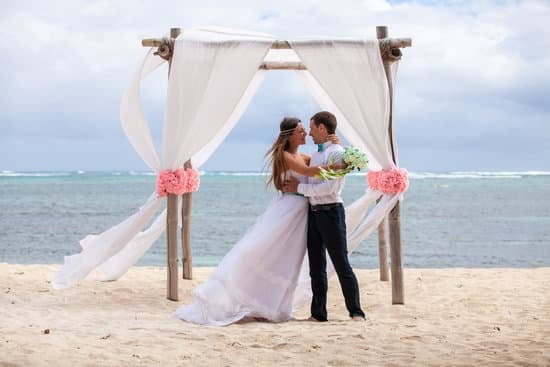When attending a wedding, one of the most common dilemmas guests face is determining how much money is acceptable for a wedding gift. The etiquette of giving wedding gifts can vary based on cultural customs, regional differences, and modern trends. Understanding the traditional expectations, as well as factors to consider when deciding on the amount, can help guests navigate this aspect of wedding etiquette with confidence.
Exploring the traditional expectations and customs surrounding wedding gifts reveals a long history of symbolic gestures and displays of generosity. In many cultures, gifting money holds significant meaning and is often considered a thoughtful way to contribute to the couple’s future together. However, factors such as budget considerations for guests and their relationship to the couple may also impact the gift amount.
Regional differences in gift-giving further illustrate how varying cultural backgrounds influence wedding gift norms. Understanding these variations can provide insight into what may be considered an appropriate monetary gift in different settings and contexts. Additionally, exploring modern trends in wedding gift giving sheds light on why cash gifts have become increasingly popular and the impact of social media and online registries on gift-giving expectations.
Factors to Consider When Deciding on the Amount
When attending a wedding, deciding on the amount of money to give as a gift can be a tricky and sensitive decision. It is important to consider various factors before determining the appropriate gift amount. One of the crucial considerations is the budget of the wedding guest.
Guests need to take into account their own financial situation and ensure that their gift amount is within their means. It is never advisable to stretch one’s budget or go into debt just to meet a certain gift expectation.
Another factor to consider when deciding on the amount of money for a wedding gift is the relationship to the couple. Close friends or family members may opt to give a larger sum compared to distant acquaintances or coworkers.
The closeness of the relationship plays a significant role in determining the gift amount, as it reflects the level of thoughtfulness and sentiment behind the present. This does not mean that one should feel pressured to overspend, but rather, it emphasizes the personal aspect of gift-giving.
In addition, cultural norms and expectations also play a role in determining how much money is acceptable for a wedding gift. Different cultures have varying customs and traditions when it comes to gifting cash for weddings. It is essential for guests to be mindful of these cultural differences and understand what is considered appropriate in each specific cultural context.
| Factors Considered | Considerations |
|---|---|
| Budget of Wedding Guest | Gift amount should be within guest’s financial means |
| Relationship to Couple | Closeness of relationship impacts gift amount |
| Cultural Norms | Important to consider what is culturally acceptable in gifting cash for weddings |
Regional Differences in Gift Giving
Examining Cultural Variations
Wedding gift customs vary significantly across different regions and countries. In some cultures, monetary gifts are the norm, while in others, specific items or experiences may be favored. It is important for wedding guests to be aware of these cultural differences when deciding on an appropriate gift. Understanding the regional customs can help ensure that the couple receives a gift that is meaningful and respectful of their background.
The Influence of Cultural Background
The cultural background of the couple and their families can also play a significant role in gift-giving norms. For example, in some cultures, it is traditional for the couple to request cash gifts to contribute to specific wedding-related expenses, such as the honeymoon or home purchase.
In other cultures, sentimental and personalized gifts may be more valued than monetary contributions. Guests should take into account the cultural background of the couple when determining an appropriate gift amount and type.
Navigating Regional Expectations
When attending a wedding in a different region or country, it’s essential for guests to familiarize themselves with the local gift-giving customs. This may involve researching traditional wedding gifts in that particular culture or asking friends who are familiar with the customs. By understanding and respecting regional expectations, guests can ensure that their wedding gift is well-received by the couple and their families.
Modern Trends in Wedding Gift Giving
Shift Towards Cash Gifts
In recent years, there has been a noticeable shift in the wedding gift-giving landscape, with many couples expressing a preference for cash gifts over traditional presents. This trend is often attributed to changing societal norms and the practicality of receiving monetary contributions. Couples may prioritize financial assistance for future endeavors such as buying a house, funding their honeymoon, or covering wedding expenses. Additionally, cash gifts alleviate the stress of managing and storing physical items in an increasingly digital world.
Social Media and Online Registries
The widespread use of social media and online registries has significantly impacted gift-giving expectations for weddings. Couples are now able to seamlessly communicate their preferences and priorities to guests through various platforms. This ease of communication has led to an increase in the prevalence of monetary requests, with couples articulating their intentions for using cash gifts. The convenience of online payment systems also plays a role in encouraging cash contributions as a preferred mode of gifting.
Reasons Behind the Trend
While traditional wedding gifts hold sentimental value, the modern trend towards cash gifts reflects practical considerations and changing lifestyles. As more couples prioritize experiences over material possessions, they may view monetary contributions as a means to create lasting memories rather than acquiring tangible items.
Furthermore, an understanding of varying financial circumstances among guests has prompted some couples to express a preference for flexible monetary gifts that can accommodate individual budgets. Ultimately, these factors contribute to reshaping contemporary attitudes towards wedding gift giving and present new considerations when determining how much money is acceptable for a wedding gift.
Creative Alternatives to Monetary Gifts
For some people, giving a cash gift for a wedding may not feel quite personal enough, or they may simply prefer to give something more unique. There are plenty of creative alternatives to monetary gifts that can show your love and support for the couple in a thoughtful and meaningful way.
One option is to give an experiential gift, such as a cooking class, wine tasting experience, or tickets to a concert or event. These types of gifts can create lasting memories for the couple and provide them with an opportunity to spend quality time together.
Another alternative is to give a personalized or handmade gift. This could be anything from a custom piece of artwork or pottery to a quilt or knitted item. Handmade gifts often carry sentimental value and can be cherished for years to come.
If the couple has indicated that they have specific hobbies or interests, consider giving them something related to those passions. For example, if they love outdoor activities, you could give them camping gear or hiking equipment. If they are foodies, a gourmet food basket or specialty cooking tools could be the perfect choice.
No matter what alternative you choose, it’s important to put thought into the gift and consider what would be most meaningful for the couple. Ultimately, the best wedding gifts are those that come from the heart and reflect your relationship with the couple, regardless of whether they involve money.
Setting a Reasonable Budget for Wedding Gifts
When attending weddings, guests often find themselves wondering how much money is acceptable for a wedding gift. Setting a reasonable budget for wedding gifts is an important aspect of the gift-giving process. Here are some factors to consider when determining how much to spend on a wedding gift:
1. Financial capabilities: It’s essential to consider your own financial situation when deciding on the amount to spend on a wedding gift. Set a budget that aligns with what you can comfortably afford without putting strain on your finances.
2. Relationship to the couple: Your relationship to the couple getting married may influence the amount you choose to spend on their wedding gift. Close family members or lifelong friends may opt for a more substantial monetary gift, while distant acquaintances or co-workers may choose a smaller amount.
3. Multiple weddings in a year: If you have several weddings to attend in a single year, it’s crucial to budget accordingly for each event. Consider spreading out your gift-giving budget evenly across all the weddings you plan to attend.
Setting a reasonable budget for wedding gifts ultimately comes down to thoughtful consideration of one’s financial capabilities and relationship with the couple getting married. By keeping these factors in mind, guests can contribute meaningful gifts without feeling pressured to overspend.
Gift-Giving Etiquette for Destination Weddings
When attending a destination wedding, it is essential to consider the unique circumstances and etiquette surrounding gift-giving. Here are some tips to navigate this situation:
- Consider the cost of attending the wedding: Destination weddings can be quite expensive for guests, considering travel, accommodation, and other associated costs. It’s important to keep this in mind when deciding on a gift.
- Factor in your relationship with the couple: Your relationship with the couple getting married may also influence how much you decide to spend on a gift. Close family members or friends may opt for a more substantial gift, while acquaintances may choose something more modest.
Moreover, it is worth considering the preferences and customs of the specific destination where the wedding is taking place. Some cultures may have different expectations when it comes to wedding gifts, so it’s important to be mindful of these traditions.
When attending a destination wedding, it’s also crucial to take into account any gift registries or preferences that the couple has communicated. While cash gifts are generally acceptable for destination weddings, knowing the couple’s preferences can help guide your decision.
Ultimately, there isn’t a one-size-fits-all answer to how much money is acceptable for a wedding gift at a destination wedding. However, being mindful of the unique circumstances and effectively communicating with the couple can help ensure that your gift is both thoughtful and appropriate for the occasion.
Communicating About Gift Preferences
When it comes to wedding gift giving, communication is key in ensuring that both the couple and the guests feel comfortable and valued. Couples may have different preferences when it comes to receiving gifts, whether they prefer monetary contributions, specific items from a registry, or even no gifts at all. It’s important for couples to communicate their preferences clearly and tactfully to their guests without imposing expectations.
One way for couples to communicate their gift preferences is by creating a wedding website where they can share details about their registry, any charitable donations they may prefer, or simply convey that their guests’ presence is the only present they desire. Including this information on the wedding invitation or a separate insert can also help convey the message politely.
On the other hand, guests can navigate gift giving etiquette by being attentive to any information provided by the couple. If no specific preferences are communicated, it’s acceptable for guests to choose a gift based on their own relationship with the couple and their budget. In cases where a cash contribution is preferred but not explicitly stated, guests may discreetly inquire about the couple’s wishes through close family members or mutual friends.
In today’s modern age of social media and online communication, discussing gift preferences has become easier than ever. Whether through a direct message or casual conversation, open communication between couples and guests can help ensure that everyone feels comfortable and appreciated in this aspect of wedding etiquette.
| Etiquette Aspect | Importance |
|---|---|
| Communication | Key in ensuring comfort and value for both couple and guests |
| Couples’ Preferences | Clear communication about chosen gifts with tactful methods |
| Guests’ Role & Communication | Being respectful towards known presences while checking through close family members if necessary. |
The Bottom Line
In conclusion, determining how much money is acceptable for a wedding gift involves considering various factors, including one’s financial situation, the relationship to the couple, and regional differences in gift-giving customs. While there are traditional expectations surrounding wedding gifts, modern trends and cultural influences have led to a shift towards cash gifts. However, it is important to remember that there are also creative alternatives to monetary gifts that can be just as meaningful and thoughtful.
Setting a reasonable budget for wedding gifts is crucial, especially when attending multiple weddings in a year. It is essential to prioritize financial capabilities while still acknowledging the significance of the occasion for the couple. Additionally, being transparent about gift preferences and communicating tactfully can help manage expectations on both ends.
Ultimately, the etiquette of giving wedding gifts is a personal decision that should be approached with thoughtfulness and consideration for all parties involved. Whether choosing to give cash or opting for a unique alternative, the most important aspect of gift-giving is the sentiment behind the gesture. As with any gesture of generosity, what matters most is the love and support expressed through the act of giving.

I have been involved in marriages for over 20 years helping couples and singles understand more about them.





